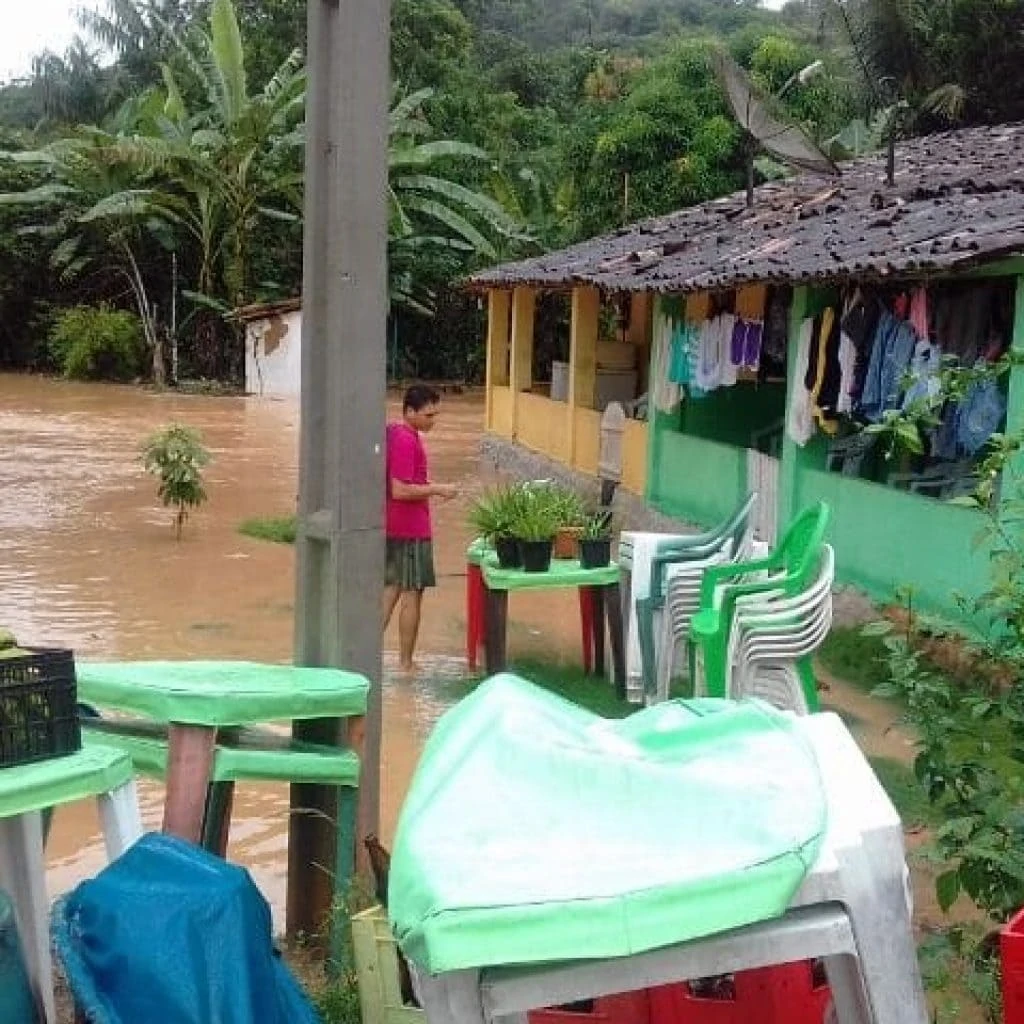The consequences of climate change are increasingly evident in the state of Pernambuco in Brazil. Only the local government is blind on this eye. Empty coffers are used as an excuse for not taking appropriate preventive measures. Our partner organisation Centro Sabia is fighting against this.
Annette Mokler, Programme Coordination Brazil
At the beginning of June this year, heavy rainfall and catastrophic flooding in the coastal zone of the Brazilian state of Pernambuco forced 57 000 people to leave their homes. In this region, our long-standing partner organisation Centro Sabia works with small farming families and traditional peoples. Many of the young people and families with whom the organisation works are affected by the storms. The regional office of our partner organisation in Rio Formoso was also damaged. Fortunately, a wave of solidarity went through the population and also public authorities announced help.
Bad luck avoidable
Due to climate change, disasters of this kind have been foreseeable for some time. The last floods took place in 2000 and 2010. This is also clear to local authorities. They promised to reduce the vulnerability of the population with civil protection measures. The local government at the time announced that, in order to prevent further flooding disasters, it would carry out construction measures to control the rivers at five locations by 2013.
Relocations for nothing
For the construction, 1200 families were forcibly resettled from their land and some of them were displaced to the peripheries of the cities without adequate compensation. Millions of francs of public money were made available for this purpose. However, none of this has been completed and is still in working order.
No plan B
Apart from the broken promise, there is still no further contingency planning that takes climate change into account. The hope that the construction measures will be implemented after all has disappeared. The government is clearly saying that there is no money for them. Our partner organisation Centro Sabia denounces the ignorant attitude of the government and tries to make this scandal known to a broad public.
Methods adapted from experience
The Centro Sabia works in the federal state of Pernambuco in three different climatic zones: the rain-rich forest region on the coast (mata atlantica), the transition zone (agreste) and the semi-arid hinterland (sertao) with agroforestry and methods of sustainability. The cistern programme implemented by Centro Sabia in Pernambuco was recently praised as an exemplary method by the Food and Agriculture Organization of the United Nations. The organization provided funds to document the cistern program in order to replicate it in other countries. Small decentralised measures to reduce the vulnerability of the population to the floods should be similarly simple.


